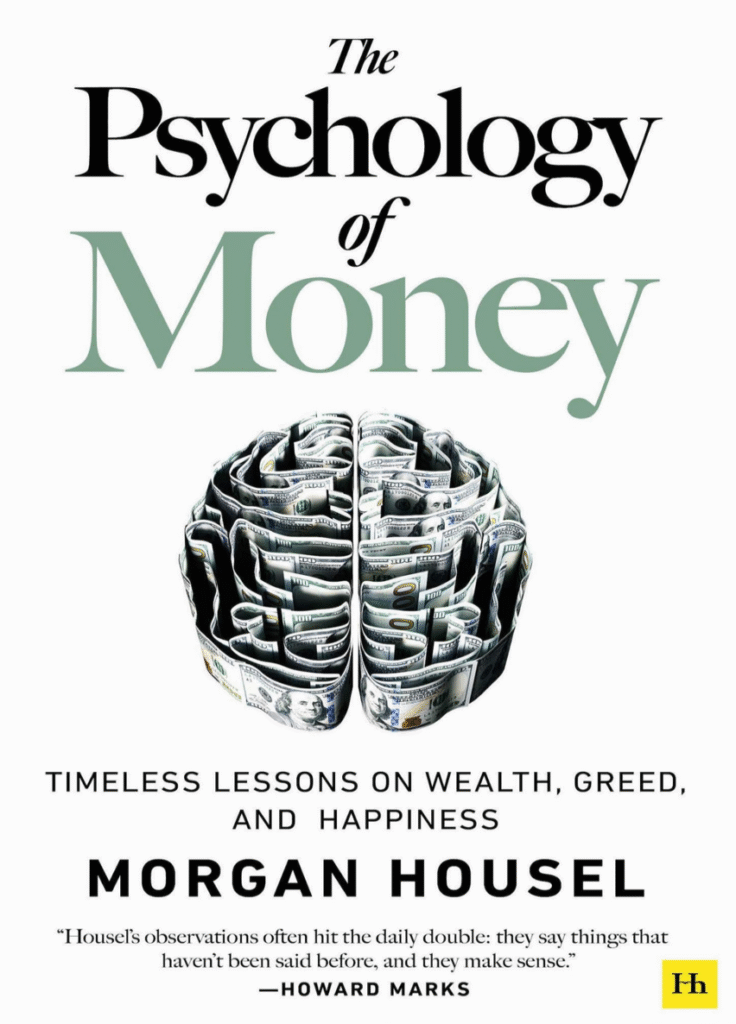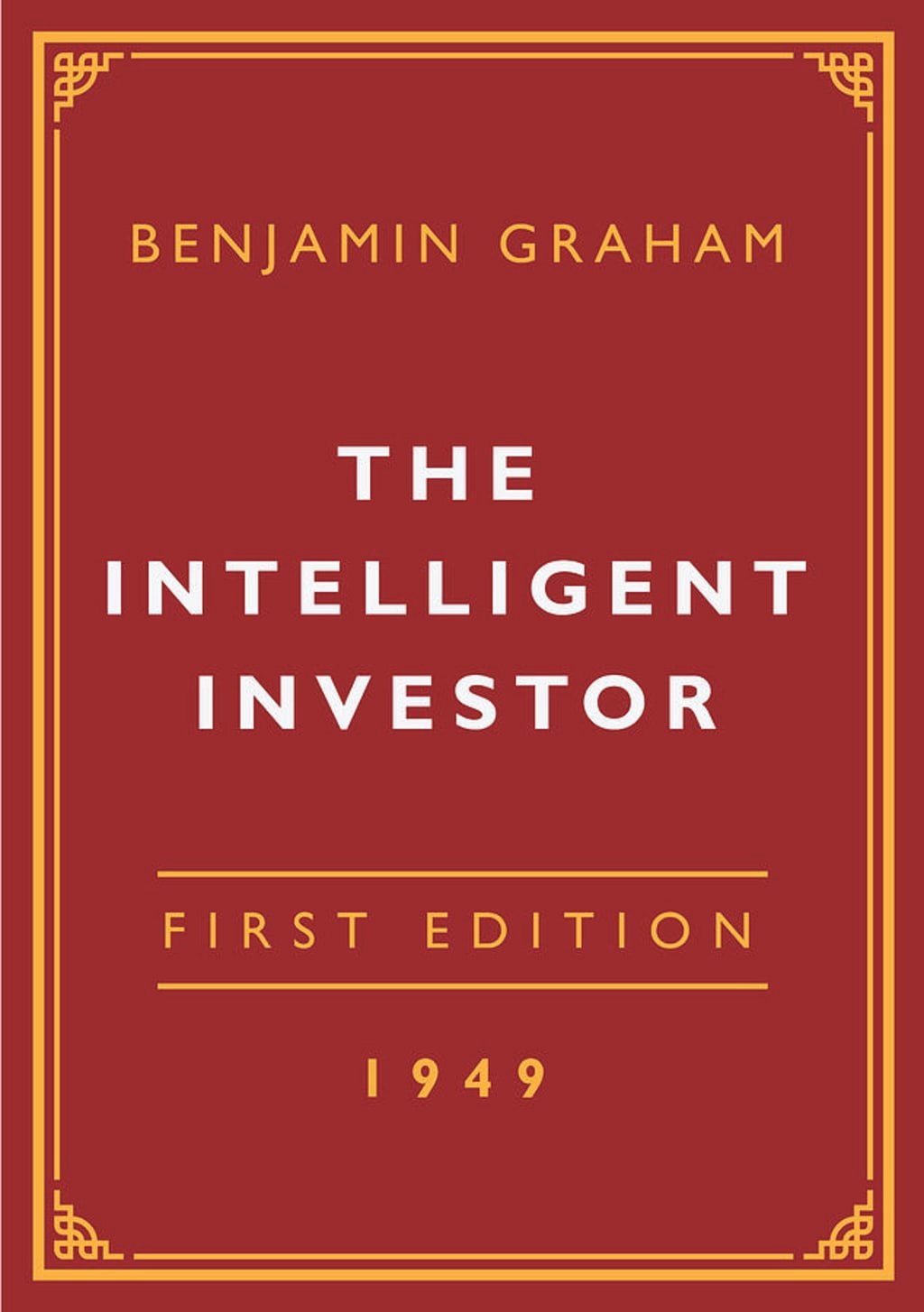
1. Introduction: Why Money is More About Behavior Than Math
Morgan Housel’s The Psychology of Money is a collection of 20 short, insightful chapters that explore how people think about money, make financial decisions, and why behavior often matters more than knowledge or intelligence.
Housel’s central thesis:
“Doing well with money has little to do with how smart you are and a lot to do with how you behave.”
He argues that financial success is not just about spreadsheets, formulas, or market predictions—it’s about understanding your own psychology, biases, and emotions.
2. No One’s Crazy: The Uniqueness of Financial Experiences
Housel opens by explaining that everyone’s view of money is shaped by their unique life experiences.
- Someone who grew up in poverty sees risk and opportunity differently than someone raised in affluence.
- People who lived through the Great Depression, hyperinflation, or a bull market have fundamentally different attitudes toward saving, investing, and spending.
Key lesson:
No one is crazy—our financial decisions make sense to us based on our own history, even if they seem irrational to others.
3. Luck & Risk: The Role of Chance in Financial Outcomes
Housel emphasizes the importance of luck and risk in financial success.
- Bill Gates became the world’s richest man in part because he attended one of the only high schools in the world with a computer.
- Many successful people are products of both hard work and fortunate circumstances.
Key lesson:
- Don’t judge others (or yourself) too harshly for financial outcomes.
- Focus on broad patterns and behaviors, not individual stories.
4. Never Enough: The Dangers of Greed and Comparison
Housel warns against the trap of “never enough”—the endless pursuit of more money, status, or possessions.
- Comparing yourself to others leads to dissatisfaction, even if you’re objectively successful.
- Many financial disasters (fraud, over-leverage, risky bets) stem from the inability to say “enough.”
Key lesson:
Define what “enough” means for you, and avoid the temptation to constantly move the goalposts.
5. Confounding Compounding: The Power of Time
One of the book’s most powerful lessons is the magic of compounding.
- Warren Buffett’s fortune is due not just to his investing skill, but to the fact that he’s been investing for over 75 years.
- Small, consistent gains over long periods lead to extraordinary results.
Key lesson:
- Time is the most powerful force in investing.
- Start early, be patient, and let compounding work for you.
6. Getting Wealthy vs. Staying Wealthy
Housel distinguishes between the skills needed to get rich and those needed to stay rich.
- Getting wealthy often requires risk-taking, optimism, and boldness.
- Staying wealthy requires humility, frugality, and fear of losing what you have.
Key lesson:
- Survival is key—avoid ruin, live to invest another day.
- Protect yourself from the downside, even if it means missing out on some upside.
7. Tails, You Win: The Impact of Outliers
A small number of events (“tail events”) often account for the majority of outcomes in investing and business.
- Most of Warren Buffett’s returns come from a handful of investments.
- In business, a few blockbuster products drive most profits.
Key lesson:
- Be prepared for surprises—good and bad.
- Don’t judge your success or failure by a single event.
8. Freedom: The Ultimate Dividend
Housel argues that the highest form of wealth is the ability to control your time.
- Money is valuable because it gives you options—freedom to do what you want, when you want.
- Many people chase money for status or possessions, but true wealth is autonomy.
Key lesson:
- Prioritize independence and flexibility in your financial goals.
9. Reasonable > Rational: The Limits of Logic
People are not always rational with money, and that’s okay.
- It’s more important to be reasonable—make decisions you can stick with, even if they’re not mathematically optimal.
- For example, paying off a low-interest mortgage early may not be rational, but it can provide peace of mind.
Key lesson:
- Personal finance is personal—do what works for you, not just what’s “right” on paper.
10. You & Me: The Danger of Imitation
Everyone has different goals, risk tolerances, and time horizons.
- What works for one person may be disastrous for another.
- Don’t blindly copy others’ investment strategies.
Key lesson:
- Build a financial plan that fits your own life, not someone else’s.
11. The Seduction of Pessimism
Bad news grabs attention more than good news.
- People are drawn to pessimistic forecasts and warnings.
- But over the long run, optimism has been a better bet for investors.
Key lesson:
- Don’t let fear and negativity drive your decisions.
- Focus on long-term progress, not short-term setbacks.
12. Wealth is What You Don’t See
Housel points out that real wealth is often invisible.
- People who flaunt expensive cars, houses, or clothes may not actually be wealthy—they may be deeply in debt.
- True wealth is the money you don’t spend—the savings and investments that provide security and freedom.
Key lesson:
- Don’t judge wealth by appearances.
- Value savings and financial independence over status symbols.
13. Save Money: The Most Important Financial Skill
Saving is more important than investing skill, income, or luck.
- Savings give you options, flexibility, and resilience.
- You don’t need a specific reason to save—just having a buffer can change your life.
Key lesson:
- Make saving a habit, regardless of your income level.
14. Reasonable Expectations: The Role of History
Housel encourages readers to study financial history, but warns that the future will always surprise us.
- The world changes—markets, economies, and societies evolve.
- Don’t expect the past to repeat exactly.
Key lesson:
- Use history as a guide, not a map.
- Be humble and flexible in your planning.
15. Room for Error: Planning for the Unknown
Build a margin of safety into your financial life.
- Expect the unexpected—job loss, market crashes, medical emergencies.
- Don’t assume everything will go according to plan.
Key lesson:
- Leave room for error in your investments, spending, and life decisions.
16. You’ll Change: The Evolution of Goals
Your financial goals and values will change over time.
- What you want at 25 may be very different at 45 or 65.
- Be willing to adapt your plans as your life evolves.
Key lesson:
- Don’t lock yourself into rigid goals.
- Review and adjust your financial plan regularly.
17. The Power of Stories
People make sense of money through stories, not just numbers.
- Narratives shape our beliefs, decisions, and actions.
- Be aware of the stories you tell yourself about money.
Key lesson:
- Question your assumptions and be open to new perspectives.
18. The Influence of Incentives
Incentives drive behavior—sometimes in unexpected ways.
- Financial advisors, fund managers, and even friends may have incentives that don’t align with your best interests.
- Be skeptical of advice and always consider the source.
Key lesson:
- Understand the incentives behind financial advice.
19. The Importance of Humility
No one can predict the future with certainty.
- The best investors are humble—they know what they don’t know.
- Overconfidence leads to big mistakes.
Key lesson:
- Stay humble, keep learning, and be willing to change your mind.
20. The Joy of Enough
Housel ends with a reminder that money is a tool, not the goal.
- The purpose of wealth is to help you live a better, more meaningful life.
- Don’t sacrifice happiness, relationships, or health in the pursuit of more money.
Key lesson:
- Define what “enough” means for you, and focus on what truly matters.
21. Actionable Checklist for Readers
- Reflect on your financial upbringing: How has your past shaped your views on money?
- Acknowledge luck and risk: Don’t judge yourself or others too harshly.
- Define “enough”: Set clear boundaries for your financial goals.
- Start early and be patient: Let compounding work for you.
- Prioritize survival: Avoid financial ruin at all costs.
- Embrace reasonable, not perfect, decisions: Do what you can stick with.
- Save consistently: Make saving a habit, not an afterthought.
- Plan for surprises: Build a margin of safety into your life.
- Review your goals regularly: Be willing to adapt as you change.
- Focus on freedom and happiness: Use money as a tool to improve your life.
22. Conclusion
The Psychology of Money is a powerful reminder that financial success is as much about mindset and behavior as it is about knowledge or skill.
Housel’s stories and insights help readers:
- Understand their own biases and emotions.
- Make better, more sustainable financial decisions.
- Focus on what truly matters—freedom, security, and happiness.
Highly recommended: This synopsis covers the main ideas, but the book’s stories, research, and depth are best experienced firsthand.
Buy and read the full book for a richer understanding and to transform your own relationship with money.


